Sony WH-1000XM5 vs Bose QuietComfort 45
Clash of the audio titans
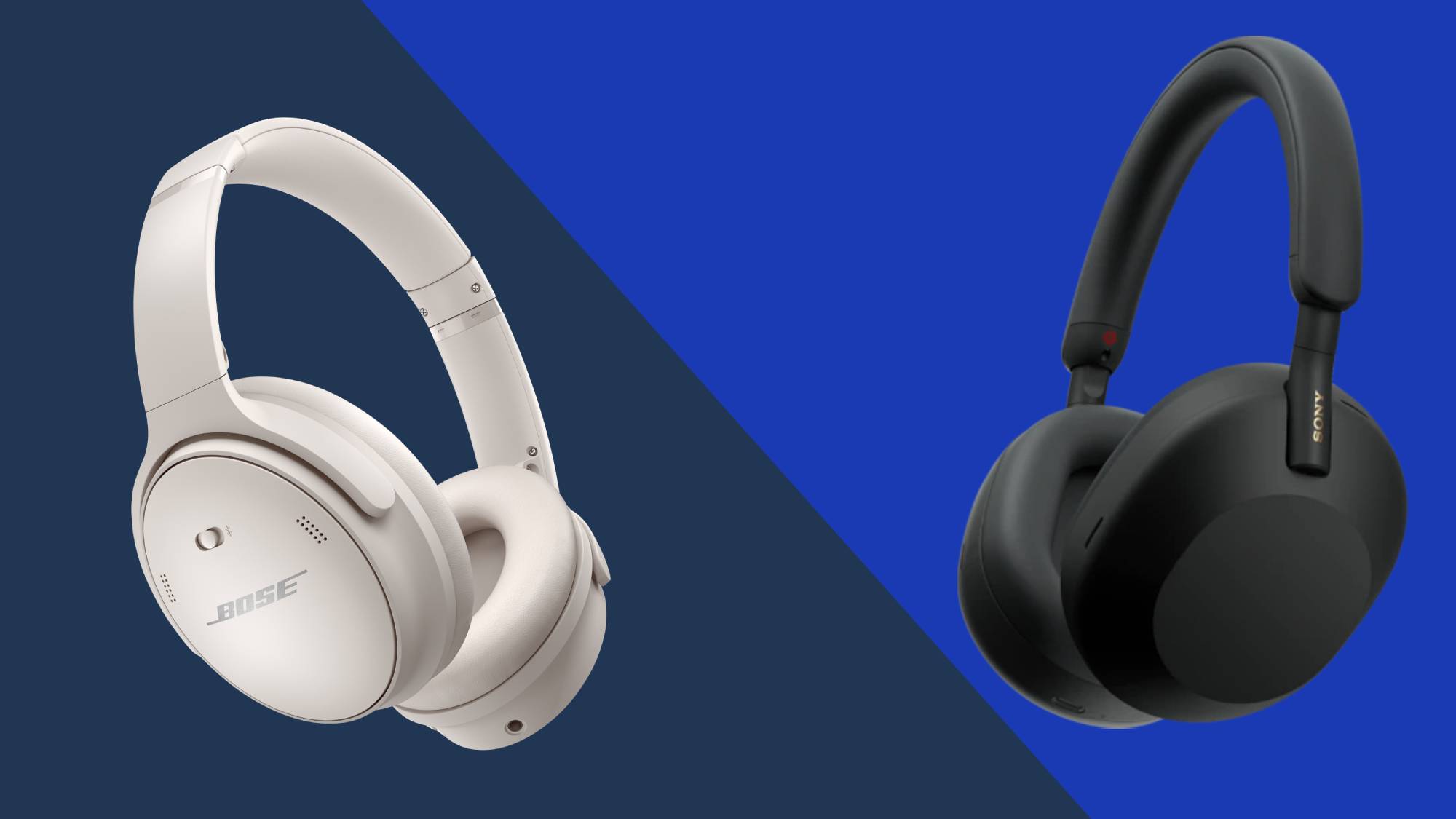
- Sony WH-1000XM5 v Bose QuietComfort 45: price and availability
- Sony WH-1000XM5 v Bose QuietComfort 45: design
- Sony WH-1000XM5 v Bose QuietComfort 45: spec and features
- Sony WH-1000XM5 v Bose QuietComfort 45: sound quality
- Sony WH-1000XM5 v Bose QuietComfort 45: noise-cancelling
- Sony WH-1000XM5 v Bose QuietComfort 45: battery life
- Sony WH-1000XM5 v Bose QuietComfort 45: takeaway
Tech is full of rivalries, in computing its Apple versus Microsoft, in gaming its Xbox versus PlayStation and in the world of headphones its Sony versus Bose. No matter how much praise one of their headphones gets, Sony and Bose audio devices always get compared to their rival’s equivalents.
This brings us to the clash between their most recent offerings. For Bose, it's the acclaimed QuietComfort 45 headphones that launched at the end of 2021; while for Sony, it’s the all-new WH-1000XM5 headphones.
So let’s see how these two noise-cancelling headphones stack up against each other and help you make a decision about which one is best for you.
Sony WH-1000XM5 v Bose QuietComfort 45: price and availability
The new Sony WH-1000XM5 will be available at the end of May for £379 / $399 / AU$649. No matter what continent you’re on you can expect to pay a decent sum to slip your ears inside a pair of these.
When the Bose QuietComfort 45 hit shelves last September they would have set you back £329 / $329 / AU$499. These days you can instead expect to pay no more than £269 / $299 /AU$419 – a fair amount less than the new Sony cans.
It can be worth seeing how Bose promo codes can help you save more too.
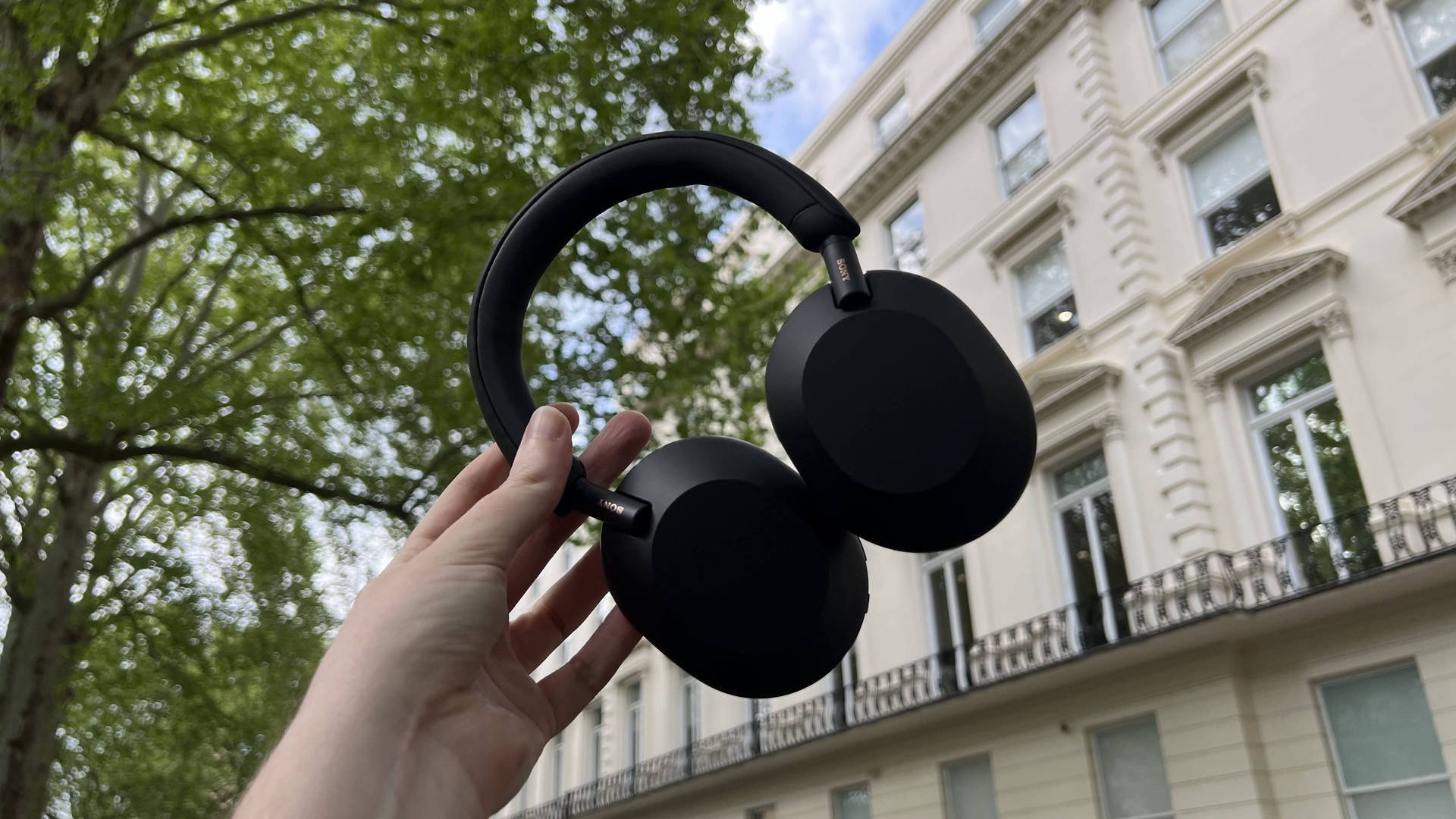
Over time we expect the Sony WH-1000XM5 headphones will see a similar price drop (just as we expect night to follow day) but if you’re after a pair today then Bose has SOny beta on price.
Get daily insight, inspiration and deals in your inbox
Sign up for breaking news, reviews, opinion, top tech deals, and more.
Sony WH-1000XM5 v Bose QuietComfort 45: design
Sony’s had a bit of a redesign with the XM5 over-ear headphones, mixing things up a bit from its predecessors (the Sony WH-1000XM3 and Sony WH-1000XM4). Some will see the more minimalist abs-clad device as smooth and sophisticated, while others may find them bland and uninteresting.
At 250g the Sony headphones are light and they sit comfortably in place for ages. Unlike other headphones, though they don’t fold in on themselves – the earcups have some articulation to help shrink the size of the carry case but these aren’t the most compact.
The Bose QuietComfort 45 weigh in at just 238g and do fold in on themselves, which makes them an even more compelling proposition for the frequent travelers among you. We’d also describe the look of these cans as functional. While they won’t win any prizes for having a novel design, the Bose headphones are a solid competitor to Sony’s when it comes to comfort, stability, and durability.
Sony WH-1000XM5 v Bose QuietComfort 45: spec and features
We know that Sony’s WH-1000XM5 headphones can connect to two devices simultaneously through a Bluetooth 5.2 wireless connection. They’re also compatible with SBC, AAC, and LDAC codecs – with sound being delivered by a pair of 30mm full-range dynamic drivers. There’s no aptX, though, which continues to be a weird omission.
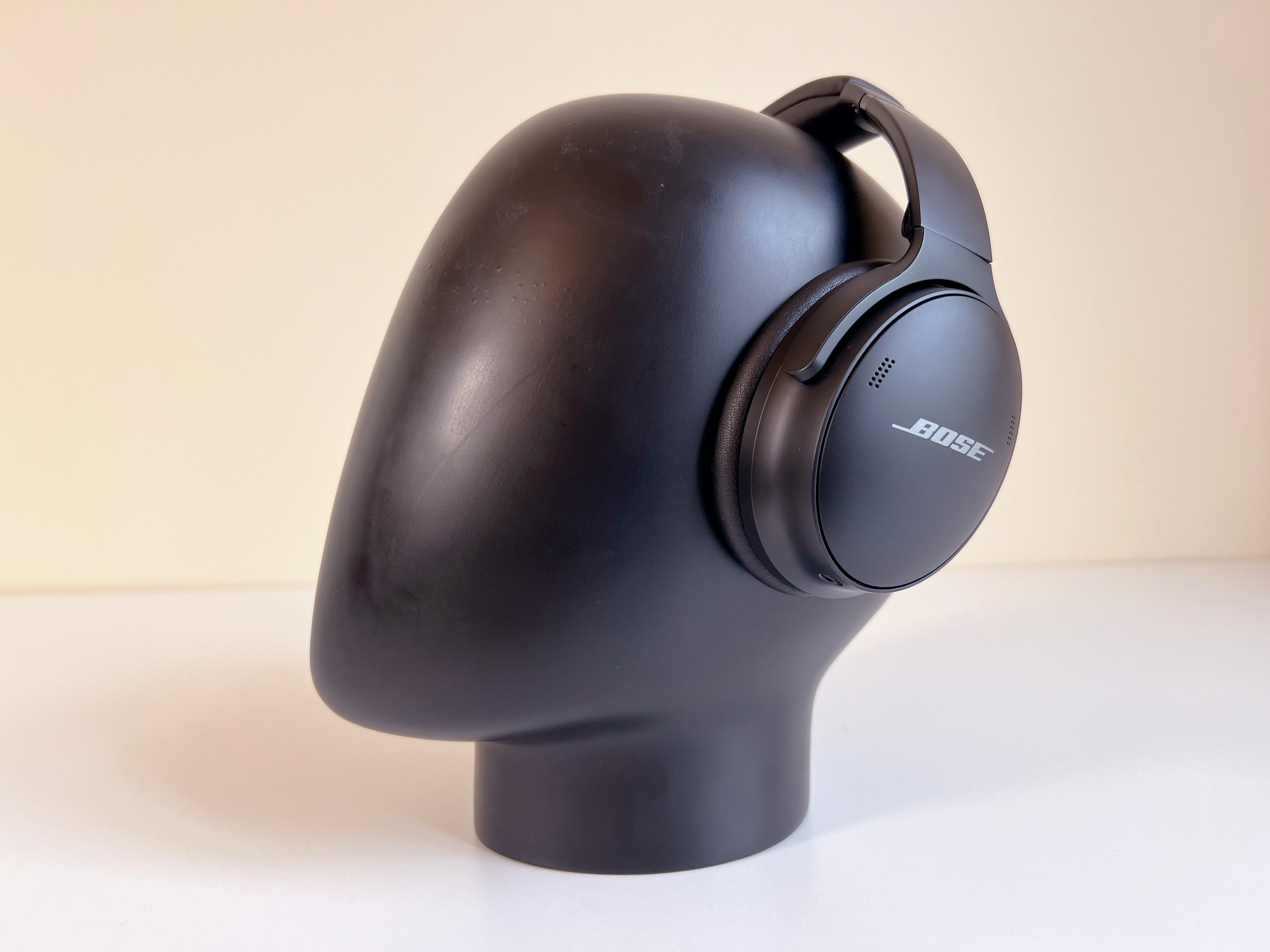
If you use the Sony Headphones Control app you can set up and use Sony’s 360 Reality Audio spatial algorithm while wearing these headphones, you just have to take a picture of your ears.
Unlike Sony, Bose hasn’t shared detailed spec lists that give away how its QuietComfort 45 headphones compare in terms of drivers and connectivity.
Though where we can compare them we know that the QuietComfort 45 lack the built-in voice assistant you’ll find in the WH-1000XM5. Plus, Bose relies on physical controls rather than touch controls like Sony; both options are well implemented so it’s mostly a matter of preference.
Sony WH-1000XM5 v Bose QuietComfort 45: sound quality
Despite the driver size, the XM5 delivers an impressive audio performance in every respect. They’re punchy but also controlled at lower frequencies, while higher tones hit with a perfectly judged bite. Rhythmic expression is gratifying, and there’s a stack of dynamic headroom available for when you want to pump the volume up.
When they were first released, the Bose QuietComfort 45 headphones had no EQ adjustment – as a result, we thought they sounded rather tentative and ambiguous. Now you can fiddle with settings in the Bose Music control app, making low frequencies more assertive without flooding the midrange, and the higher frequencies can enjoy a little more confidence too.
What no amount of EQ finessing can do, though is restore fine details to tracks – details that Bose’s offering lets slip through the cracks; whereas Sony provides a much more informative listening experience.
Sony WH-1000XM5 v Bose QuietComfort 45: noise-cancelling
Bose headphones are generally considered some of the best in terms of their noise-cancelling abilities, though Sony’s WH-1000XM5 cans give them a run for their money.
Without leaving a trace of counter-signal, any sensation of in-earcup pressure, or disruption of the noise floor, the XM5 simply negates the vast majority of external sound with the sort of casual efficiency we more readily associate with its rival.
Similarly, the QuietComfort 45 headphones are able to cancel out anything short of an airplane passing overhead – if you were a passenger on said plane you’d be able to completely tune out the drone of the engine.
Beyond regular noise cancellation, Sony’s new cans also offer a feature called adaptive noise-cancellation that attempts to learn your most frequently visited environments and specifically tune out certain sounds.
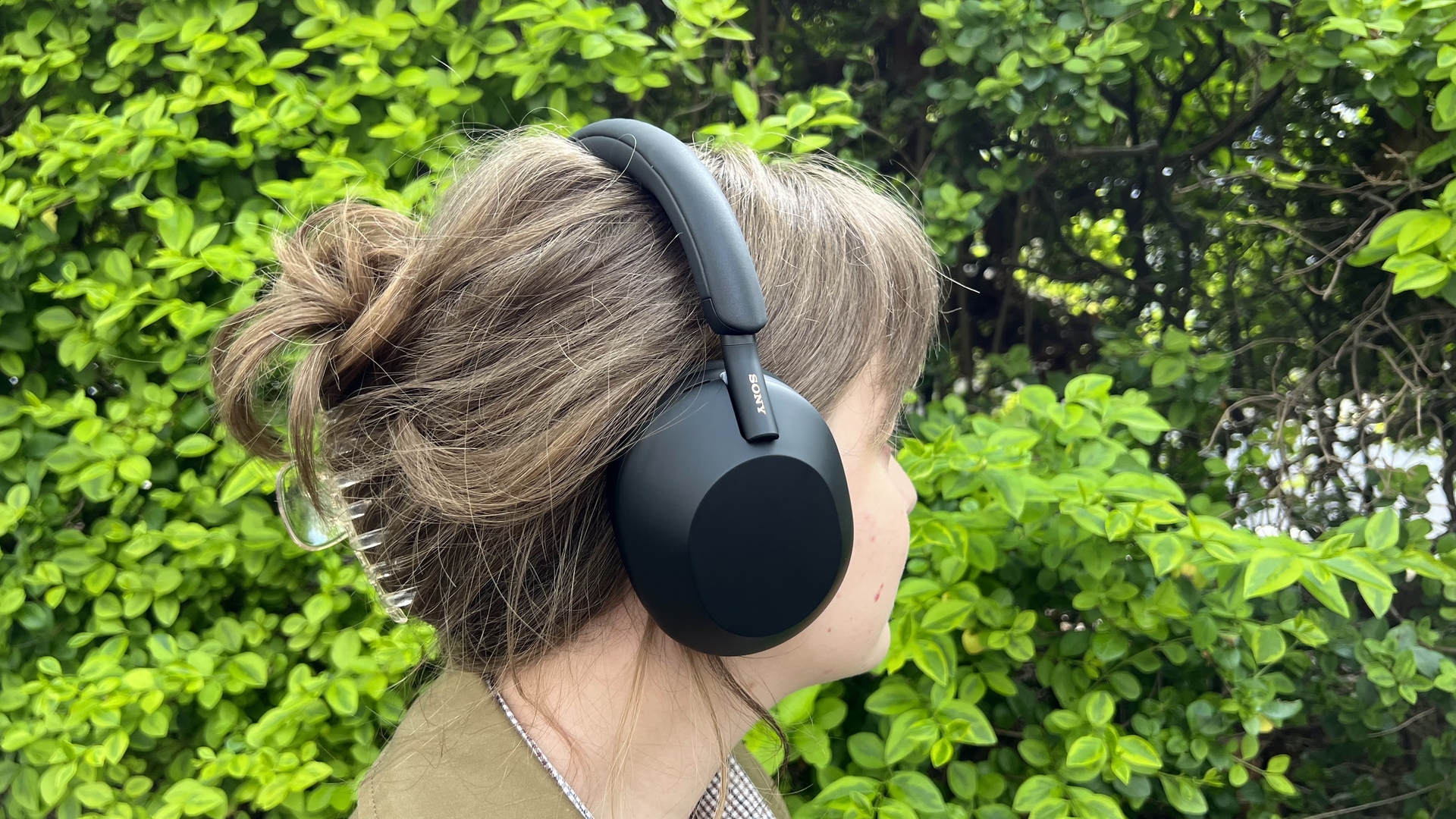
Bose doesn’t offer something like this, though both headphones do share similar ambient sound or awareness modes. In Sony’s case, this allows you instead amplify the sounds around you when you need to pay attention, whereas Bose’s feature seems to simply be that noise-cancellation has been turned off.
Sony WH-1000XM5 v Bose QuietComfort 45: battery life
With USB-PD charging the Sony WH-1000XM5 can receive three hour’s-worth of power in just three minutes. Charge them the more conventional way and they’ll go from flat to full in a little over three hours. Once full, though, they last for 30 hours with noise-cancelling switched on, or 40 hours if it’s off.
The Bose QuietComfort 45 can’t really compete with those numbers. For them, the best-case scenario is that they’ll last for about around 25 hours. That’s not half bad but it likely won’t cause Sony any sleepless nights.
Sony WH-1000XM5 v Bose QuietComfort 45: takeaway
In the end, this battle has mostly gone Sony’s way.
That’s not saying the Bose QuietComfort 45 headphones are in any way terrible – their battery life is better than average, their comfort is undeniable, their noise-cancelling remains the best around and their audio performance is solid. Plus they’re the cheaper of the two options.
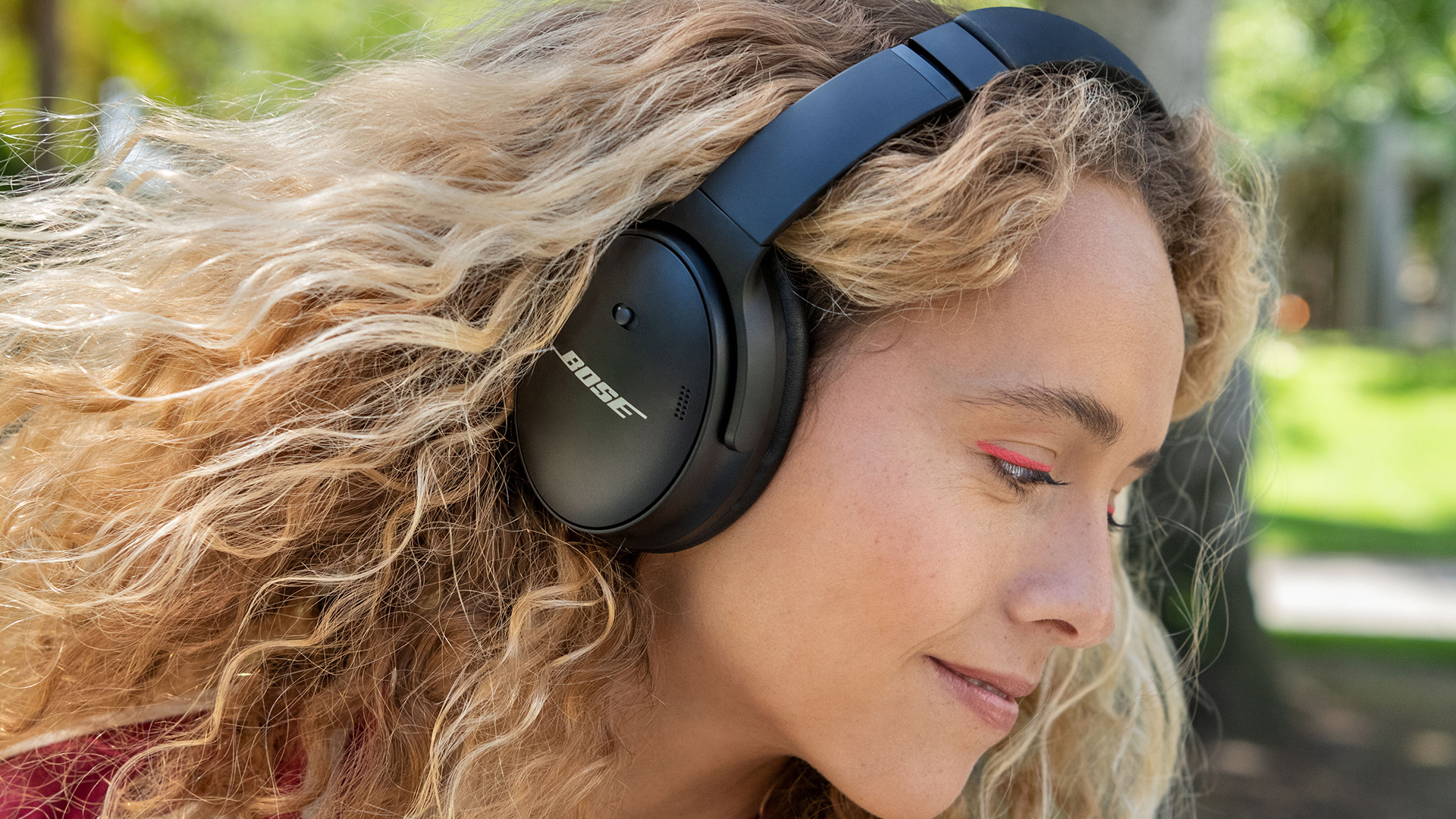
But, Sony’s WH-1000XM5 headphones have put considerable distance between the rivals with superior performance in nearly every category – including noise cancellation which is remarkable.
If you can afford to pay that bit extra or are willing to wait for a deal, then the Sony WH-1000XM5 headphones are the way to go.
But which is better for you the Sony WH-1000XM5 headphones or their predecessor the Sony WH-1000XM4?
Simon Lucas is a senior editorial professional with deep experience of print/digital publishing and the consumer electronics landscape. Based in Brighton, Simon worked at TechRadar's sister site What HiFi? for a number of years, as both a features editor and a digital editor, before embarking on a career in freelance consultancy, content creation, and journalism for some of the biggest brands and publications in the world.
With enormous expertise in all things home entertainment, Simon reviews everything from turntables to soundbars for TechRadar, and also likes to dip his toes into longform features and buying guides. His bylines include GQ, The Guardian, Hi-Fi+, Metro, The Observer, Pocket Lint, Shortlist, Stuff T3, Tom's Guide, Trusted Reviews, and more.
